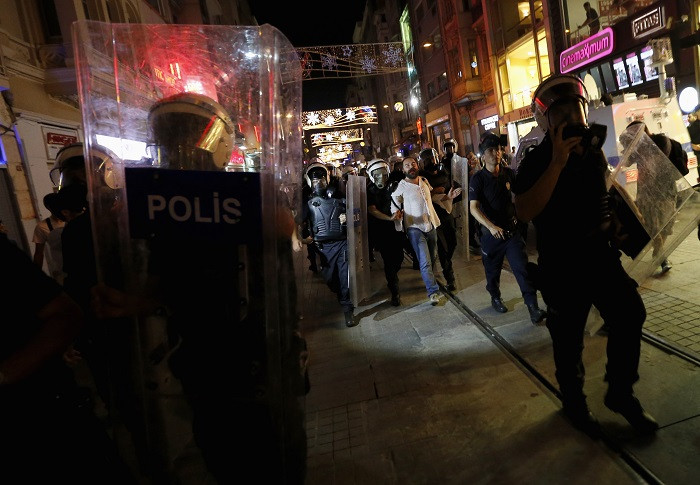Turkish Riot Police Disperse Protesters With Tear Gas

Turkish riot police have fired tear gas and water cannon at hundreds of protesters in Istanbul and Ankara. The protesters were demonstrating against a controversial new internet censorship bill.
Police forcefully dispersed protesters chanting anti-government slogans in Istanbul's central Taksim Square on Saturday, with demonstrators attempting to escape into side streets.
Around 300 protesters gathered in the capital Ankara, with smaller demonstrations also taking place in the coastal city of Izmir.
One protester told Euronews: "I'm here to defend my internet right. It's wrong to be banned by somebody while you pay for the internet. I'm protesting about that. And censorship is a crime."
The draft bill is due to be debated in Turkey's parliament and would enable the mass surveillance of internet users.
I'm here to defend my internet right. Censorship is a crime
The proposed law would increase controls on internet usage and give the government the authority to order web hosts to keep records of users' web activity for up to two years.
Officials would also be able to bypass courts to order internet service providers to block online content judged to be illegal or deemed to violate an individual's privacy.
The sweeping measures would be added to an existing law that regulates internet usage, and form part of a package that contains almost 130 articles on a wide range of issues.
The European Court of Human Rights has ruled that Turkey's current internet law violates Article 10 of the European Convention on Human Rights, which enshrines to right to hold opinions and to give and receive information and ideas without interference from a public authority.
Turkey made nearly 1,700 requests to Google to remove material from the internet in the first six months of 2013 – more than three times the figure for any other country. Turkish courts have also previously blocked access to websites such as YouTube and Vimeo.
© Copyright IBTimes 2025. All rights reserved.





















